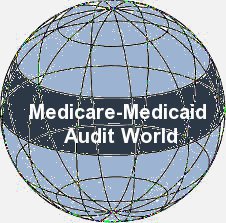 Part 1 of this post provided information on the number of appeals being filed by providers from RAC repayment demands and, for those appeals already decided, the extraordinary success providers have had in getting RAC decisions overturned. In some cases, the Equal Access to Justice Act (EAJA) opens the door to the recovery of the fees and costs incurred by the provider in prosecuting the appeal if the provider prevailed in an “adversary adjudication” before an ALJ, and if the position of CMS was not “substantially justified.”
Part 1 of this post provided information on the number of appeals being filed by providers from RAC repayment demands and, for those appeals already decided, the extraordinary success providers have had in getting RAC decisions overturned. In some cases, the Equal Access to Justice Act (EAJA) opens the door to the recovery of the fees and costs incurred by the provider in prosecuting the appeal if the provider prevailed in an “adversary adjudication” before an ALJ, and if the position of CMS was not “substantially justified.”
What is an “adversary adjudication?” – Handron v. Secretary Department of Health and Human Services
 In 2003, Dr. Handron, a psychologist, received a demand to repay $604,038 from a Medicare contractor because his documentation did not support the services billed. The amount to be repaid was extrapolated from a nurse’s review of 2,500 of Dr. Handron’s claims. Dr. Handron retained counsel and after losing his initial appeal, appealed to an ALJ. The ALJ determined that of the 2,500 claims reviewed by the nurse, Dr. Handron had been overpaid only $5,434.48 and that because the statistical sampling procedure used by the contractor was unreliable, the extrapolation was invalid. Although the ALJ requested that a representative of the contractor or CMS appear as a non-party participant at the hearing, none did so. However, again at the ALJ’s request, CMS did provide the ALJ with documents related to the sampling procedure and extrapolation used by the contractor.
In 2003, Dr. Handron, a psychologist, received a demand to repay $604,038 from a Medicare contractor because his documentation did not support the services billed. The amount to be repaid was extrapolated from a nurse’s review of 2,500 of Dr. Handron’s claims. Dr. Handron retained counsel and after losing his initial appeal, appealed to an ALJ. The ALJ determined that of the 2,500 claims reviewed by the nurse, Dr. Handron had been overpaid only $5,434.48 and that because the statistical sampling procedure used by the contractor was unreliable, the extrapolation was invalid. Although the ALJ requested that a representative of the contractor or CMS appear as a non-party participant at the hearing, none did so. However, again at the ALJ’s request, CMS did provide the ALJ with documents related to the sampling procedure and extrapolation used by the contractor.
After prevailing on the vast majority of the claims in his appeal, Dr. Handron filed an application for fees and expenses under the EAJA. The ALJ, the Medicare Appeals Council and the District Court all denied Dr. Handron’s claim based upon a HHS regulation found at 45 CFR § 13.3 that defines an “adversary adjudication” as one in which CMS is represented by counsel at the ALJ hearing. The Third Circuit disregarded the regulation and held that:
[C]ongress chose language that left open the possibility that the government’s position could be represented in some other manner and by someone other than a lawyer. This indicates Congress’s recognition that the position of the United States can be represented in many ways and its desire to grant judges some discretion in determining whether particular action “represents” the government’s position. It does not suggest that the government’s position can only be represented at a hearing if a government representative physically stands before the decision-maker…
Accordingly, we have little doubt that some forms of written advocacy submitted to an ALJ can constitute a representation of the government’s position, so as to make an agency proceeding an “adversary adjudication” for purposes of the EAJA.
 Although Dr. Handron won the attorney battle, he lost the war when the Court held that something more than the provision by CMS of the claim files and documents explaining the statistical sampling methodology was required to make his ALJ proceeding an “adversary adjudication.” The Court held that for an ALJ proceeding to be an adversary adjudication, the Government must engage in:
Although Dr. Handron won the attorney battle, he lost the war when the Court held that something more than the provision by CMS of the claim files and documents explaining the statistical sampling methodology was required to make his ALJ proceeding an “adversary adjudication.” The Court held that for an ALJ proceeding to be an adversary adjudication, the Government must engage in:
 Medicare-Medicaid Audit World
Medicare-Medicaid Audit World






